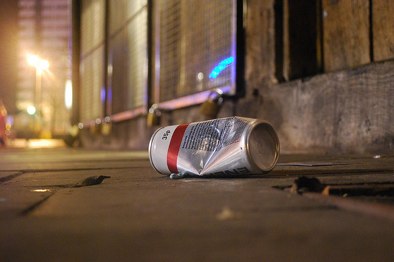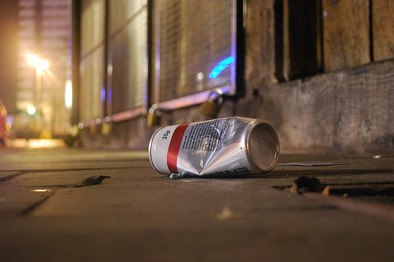
Editor’s note: Guest author Tim Wu is a profesor at Columbia Law School and author of The Master Switch: The Rise And Fall Of Information Empires. He is also credited with coining the term “network neutrality.” Earlier this week, the FCC approved weakened net neutrality rules which were highly debated and nobody seems to be happy with. In this guest post, Wu tries to sort out who benefits and who loses as result of the new rules.
The new Net Neutrality rules put off most of the hard questions—but who does that help and hurt?
When government faces a tough decision, it has three options: “Aye,” “Nay,” or “Kay”—“Kick the Can.” Postponement is attractive, and the Obama administration’s 2010 Net Neutrality rule has transformed can-kicking, the traditional domain of small children, into an art form. In its rule the FCC has successfully put off almost all of the hard Net Neutrality questions that have been buzzing around since 2000 or so. It is a remarkable feat to write a rule that actually creates more uncertainty than no rule, but by golly, the agency has done it.
If you’re the type that prizes certainty and clarity (i.e., most engineers, business people and investors), then manufacturing confusion may sound like insanity. But welcome to law school: good lawyers know that uncertainty has a power all of its own. So to really understand the Net Neutrality rule is not to bother understanding the rule itself, but rather the effects the uncertainty will create over the next 5 years or so.
In simple win/lose terms, the effects are good news for the wireless (Verizon / AT&T) and Internet app (Google / Skype) companies, and, as we’ll see, something of a defeat for the cable industry. For users, the consequences are mixed. What you’ll probably notice most clearly is a sense of a growing gap between the wireline and wireless internet. The reason is that the whatever the wireless rules do (which is, of course, uncertain), they’ll have only a marginal effect on the practices in that industry.
Let’s look at how, exactly, the rule creates uncertainty. For years everyone has been wondering whether the FCC might bless or damn an Internet “fast lane”—that is, allow a firm like Comcast to speed up Hulu in exchange for cash. The FCC gives us, well, no clear answer. Instead, it tells cable and DSL providers that “unreasonable discrimination” is banned, and then hints strongly that some prioritization might be okay, but paid prioritization might be trouble. Got that?
Another big question is whether the FCC has authority to make the rules at all. After this rulemaking, that question will remain unclear for a good four to six years. We’ll get an initial indication in about two years (the length of time it will take for the initial legal challenge), but a final answer may require the Supreme Court to get involved. Meanwhile, if the new rule is struck down by a federal court, the FCC retains the power to reenact it using a different basis of authority (its backup power, so to speak). That will effectively reset the authority question for another two years. Isn’t law fun?
The rule is also, finally, deliberately unclear as to exactly who the law applies to, a question the FCC will decide when the time comes. Nor, importantly, do we know exactly what the Net Neutrality rule means for the wireless internet, other than it might be more lenient. Then again, the FCC makes pains to say (on the urging of Commissioner Copps), it might not be more lenient.
Believe it or not, there is a meaning to this madness, for we can predict the effects of the uncertainty. I suggest it will confirm present trends. The uncertainty supports a continued openness on the wired internet, while also sanctioning a wireless internet that is semi-closed and dominated by commercial content. In the language of my book, The Master Switch, the rules may slow the cycle of consolidation on the wireline Internet, while simultaneously speeding it up in wireless. At a deeper level it suggests a coming age of Two Kingdoms: an Internet experience ever more divided by whether you pick up your laptop or your phone.
Let’s see how this will work. First, the rule’s uncertain application to any would-be fast-lane is as good as a ban. The uncertainty makes major investments needed to create a complex prioritization system a dicey proposition. That’s particularly unhappy news for the cable industry, which has more of a fast lane to sell. On the other hand, as is so often the case, what is bad news for cable is good news for consumers. The rule may finally force cable to offer higher speeds instead of trying to squeeze money out of app providers.
Also unhappily for cable, but good for users, the tenor of the rule suggests that the FCC will be suspect of efforts to kill Netflix or other over-the-top video sites. There is, of course, no clear rule saying so, but rather a sense that this is what “unreasonable” discrimination is all about. It’s in the air.
In the wireless world, matters are much the opposite. To change current trends would have required a very clear and aggressive ban on multiple forms of discrimination. Instead, the uncertainty confirms a world where favoritism operates not at the network level, but at the level of the physical device, operating system, and arcane areas like app store placement. This is a game that Google, a staunch advocate of wireline Net Neutrality, plays pretty well. But it is Apple who is, of course, the master here. Notice that when Apple decided to block WikiLeaks, it didn’t block the website, but rather declared that the App didn’t meet developer guidelines. If, instead, partner AT&T had blocked wikileaks.ch, all hell would have broken lose.
The difference between wireless and wireline doesn’t necessarily make technical sense, but it is more about which Internet is a happier home for various business models. Discriminatory platforms favor old-school commercial content, which suggest that the Net Neutrality rule will probably foster a continued migration of commercial services to wireless. Meanwhile, the Internet that arrives on your computer will remain a happier home for social, advertising-based, amateur, and non-profit projects, like Wikipedia or, frankly, Facebook. Whether that was the intent of the rule is, of course, impossible to say. But seen through the mists of uncertainty and vagueness, the message is nonetheless clear: so much for “One Web.”
Photo credit: Flickr/Serban Constantin
